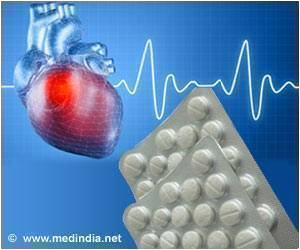Evolocumab that belongs to a new class of cholesterol lowering drug PCSK9 inhibitors is not associated with a decline in memory or cognitive function, reveals study.

TOP INSIGHT
Evolocumab drug is not associated with a decline in memory or cognitive function.
"After an average of 19 months of treatment, our data show that changes in memory and cognitive function were very small and similar between patients treated with evolocumab and those treated with placebo," said Robert Giugliano, MD, SM, a senior investigator in the TIMI Study Group and physician in the Cardiovascular Division at BWH. "These data should reassure physicians and patients who may have had questions about the safety of this drug as it pertains to cognitive impairment."
Using a computer tablet-based tool, researchers assessed the executive function, working memory, episodic memory and psychomotor speed of 1,974 patients who were enrolled in EBBINGHAUS, a substudy embedded in the FOURIER trial. FOURIER was designed to evaluate the impact of evolocumab on cardiovascular outcomes in patients on statin therapy, and found that evolocumab significantly reduced cardiovascular events, with a larger effect the longer patients were treated.
For EBBINGHAUS, patients performed baseline cognitive tests at the time of enrollment, and at six, 12 and 24 months. In the primary analysis, researchers compared changes in the baseline measurement in 1,204 patients who had a cognitive assessment on or prior to the first day they received evolocumab or placebo; a secondary analysis compared results in all 1,974 patients, including 770 patients who had baseline testing after the first dose but no later than the week 12 visit.
"We examined tests of potential adverse effects of the treatment on not only memory but also attention and reaction time that are important aspects of cognition that could seriously impact daily functioning," said Brian R. Ott, MD a physician in the Department of Neurology at Rhode Island Hospital and the Alpert Medical School of Brown University, and member of the EBBINGHAUS study steering committee. "We found no significant differences during the course of the study between the active and placebo treatment groups for any of these cognitive domains.
In addition to collecting data from the computer tablet-based test, researchers also collected and analyzed information from self-reported patient assessments of everyday function, and investigator-reported adverse events related to memory and cognition. For both of these measures, there were no significant differences between the treatment and the placebo groups.
Source-Eurekalert
 MEDINDIA
MEDINDIA




 Email
Email










